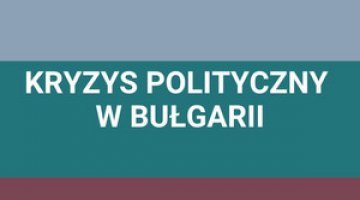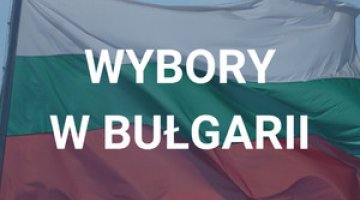Analyses
Bulgaria: the governing centre-right is consolidating power
Rosen Plevneliev, former minister of regional development, won the presidential runoff on 30 October as the candidate of the ruling centre-right party, Citizens for European Development of Bulgaria (GERB). The president elect received 52.6% of the votes and thus beat the candidate of the centre-left Bulgarian Socialist Party (BSP), the former foreign minister, Ivaylo Kalfin (47.4% of the votes). Local elections were held in parallel with the presidential election. GERB candidates clearly won in most regions and significantly improved the party’s results in comparison to the previous local elections in 2007. The combined presidential and local elections were accompanied by extensive organisational problems and irregularities linked to buying votes. However, their scale was not large enough to invalidate the results of the elections.
Commentary
- The outcome of the elections means that GERB has gained a dominant position in the main centres of power (president, government, parliament) and in most of the local governments. The government led by Boyko Borisov will remain a strong decision-making centre. The head of state has limited powers, and President Plevneliev, unlike his predecessor, has no political support base or strong ambitions to play an independent role on the political scene and will closely co-operate with the prime minister.
- The time of divided stances on foreign policy and rivalry between the government and the presidential administration is coming to an end. The previous president, Georgi Parvanov (BSP) consistently criticised GERB’s economic programme and opposed the blocking of large energy projects implemented jointly with Russia (the South Stream gas pipeline, the Burgas – Alexandroupolis oil pipeline and the Belene nuclear power plant). He used his limited prerogatives to a maximum extent, for example he contested the governmental plans for improving the expeditionary capabilities of the Bulgarian army and did not agree to dismiss the ambassadors whose co-operation with the communist secret services had been proven.
- The Bulgarian political scene is evolving towards a bipolar model, where GERB and BSP will hold the dominant positions. GERB has invariably won all elections since 2007 (with the exception of the local elections in 2007, when it received the second best result after BSP). As GERB is gaining the dominant position, the right-wing Blue Coalition and the xenophobic Ataka party, which received record-low support, are being gradually marginalised. The grouping which represents the Turkish minority, the Movement for Rights and Freedoms, achieved a relatively poor result. In turn, the Bulgarian Socialist Party feels stronger after the elections as its candidate in the presidential election gained a high level of support, and the party itself preserved a strong position in local governments.
- The consolidation of power by GERB in the middle of the tenure of the present parliament will not necessarily translate into an acceleration and deepening of economic reforms. The government is likely to avoid unpopular decisions, given the vision of the parliamentary election in 2013. The restrictive fiscal policy will be continued, which has been proven by the draft budget presented immediately after the elections (reduction of deficit to a level of 1.3% of GDP in 2012). However, at the same time, GERB is still avoiding the necessary healthcare and pension system reforms.




